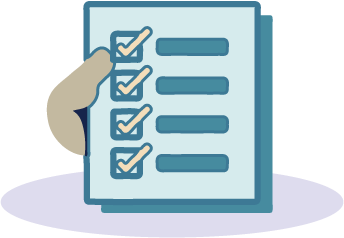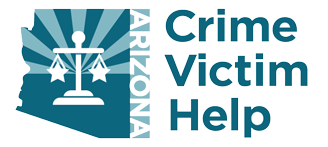Lifetime No-Contact Injunctions
A lifetime no-contact injunction (A.R.S. § 13-719) is a court order issued by a judge that tells a person found guilty of a dangerous, serious, or felony offense (the offender) that they are not allowed to contact the victim for the rest of their life.

Who can apply for a lifetime no-contact injunction?
- The victim,
- The victim’s attorney,
- The victim’s legal guardian, or
- The prosecutor of a violent crime may petition the court for a lifetime no-contact injunction.
What dangerous, serious, or felony offense qualifies for a lifetime no-contact order?
To be eligible for a lifetime no-contact injunction, the offender must be found guilty of:
Dangerous offense that is a felony under
A.R.S. § 13-105,
A.R.S. § 13-105,
Serious offense or violent or aggravated felony under
A.R.S. § 13-706,
A.R.S. § 13-706,
Felony offense under
A.R.S. Title 13, Chapter 14 or 35.1, or
A.R.S. Title 13, Chapter 14 or 35.1, or
Dangerous crime against children.

A lifetime no-contact injunction may also be requested if an offender is found guilty of attempting, conspiring, soliciting, or facilitating the crimes listed above.
Find a list of qualifying offenses here: https://www.azcourts.gov/selfservicecenter/Lifetime-No-Contact-Injunctions/Offenses-Qualifying-for-Lifetime-No-Contact-Injunctions
How do I apply for a lifetime no-contact injunction?
If there is an active criminal case before the court
-
The victim or the prosecutor in the case may ask the judge for an injunction at the time of sentencing.
If the offender was already sentenced for the qualifying crime
-
The victim or prosecutor may file a Petition and Confidential Victim Information Sheet with the court that handled sentencing.
If the offender and I share custody of a child (or children), can I still file for a lifetime no-contact injunction?
Yes, a request may be made or a petition may still be filed. If a petition is filed, the form asks the victim if a current custody (legal decision-making and parenting time) plan is in place.
Who can help me ask for a lifetime no-contact injunction?
While a victim may apply for a lifetime no-contact injunction on their own, there are agencies that may be able to help with the petition and answer specific legal questions or concerns.

-
County Attorney’s Office where the offender was sentenced
-
Victim Rights or Crime Victim Advocate
-
Legal Service Provider
Can I have an order of protection and a lifetime no-contact injunction at the same time?

Yes, a victim does not have to wait for a protective order to expire before requesting a lifetime no-contact injunction.
There are a few reasons that a victim may want to have both in place:
There are a few reasons that a victim may want to have both in place:
There are a few reasons that a victim may want to have both in place:
-
Children and pets can be listed on an order of protection, but not on a lifetime no-contact injunction
-
Overlap of protection until the offender is served with the lifetime no-contact injunction
My order of protection listed my kids, can they be added to my lifetime no-contact injunction?
No. A lifetime no-contact injunction only lists one victim and one offender.
For a child to have a lifetime no-contact injunction, a separate request would need to be made.
For a child to have a lifetime no-contact injunction, a separate request would need to be made.

Can a lifetime no-contact injunction be removed?
Yes. A lifetime no-contact injunction can be removed in specific situations. A lifetime no-contact injunction is in place until one of the following happens:

-
The offender or victim dies,
-
The offender’s conviction is vacated, expunged, or overturned,
-
The offender is pardoned, or
-
The victim asks the court for it to be removed.
I was assaulted 20 years ago. Can I file for a lifetime no-contact injunction?
Yes. A victim of a past crime that qualifies under the law may file at any time for a lifetime no-contact injunction.
How is the offender informed about the lifetime no-contact injunction?
The offender is served a lifetime no-contact injunction by a sheriff, law enforcement officer, or a process server. The order must be served in person. There is no cost for service.
If the petition is issued at sentencing, service happens in the courtroom and will be entered into the record.

What happens if the offender does not follow the lifetime no-contact injunction?
A lifetime no-contact injunction is like an order of protection.
If the offender contacts the victim, the victim may call the police to enforce the injunction.
If the offender contacts the victim, the victim may call the police to enforce the injunction.


